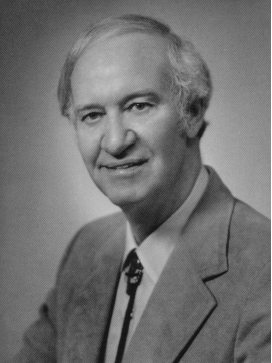Malcolm Knowles started with a career goal of being in the U.S. Foreign Service, but shortly after completing his undergraduate studies in 1935 he was informed that the State Department had no openings and did not foresee any for at least the next three years. Consequently, he searched for employment in other lines of work. Knowles found himself in a position of educating unemployed young adults (ages eighteen to twenty-five) and realized that he would need to find strategies and techniques of training different from his educational experiences. He began to seek out established professionals in various fields of adult education. Soon enough he had developed a personal advisory council. Two early pioneers in adult education, Dorthy Hewitt and Eduard C. Linderman, were important sources of inspiration and reinforcement for Knowles.
As Knowles expanded his understanding and practice of teaching adults, he began to recognize commonalties in educators of adult learning. He noticed that successful and effective adult education teachers were more focused on their students as individuals, were less formal in their educational approach, engaged students, encouraged participation, and gave the students more helpful support.
Knowles continued his self-directed studies of adult learning through his educational and career changes, including the military, by reading, experiencing, and dialoging with other supporters of the differences between school age learners and adult learners.
Over time Knowles realized that "although there was general agreement among adult educators that adults are different from youth as learners, there was no comprehensive theory about these differences" (Knowles, 1984, p. 4). For his master's thesis he decided to synthesize the insights, principles, and practices regarding adult education that he had gathered through the years to initiate the construction of a comprehensive theory of adult education. This thesis, Informal Adult Education, was published in 1950 and is regarded as his first book.
Over the next twenty years Knowles continued his studies in adult learning. He engaged in research and applied principles of adult learning in the formal environment of a university.
In 1967, an adult educator from Yugoslavia, Dusan Savicevic, approached Knowles after attending one of his summer sessions and explained that his research, application, and practice was known as 'andragogy'. Thus, Knowles finally had a label for his principles and concepts of educating adults. Despite the fact that the term andragogy had been used abroad for decades, it was Malcolm Knowles who began to use the word in North America. Hence, he is known as the father of andragogy.
Knowles' next book, The Modern Practice of Adult Education: Andragogy Versus Pedagogy, was published in 1970. At this time he saw the two models, pedagogy and andragogy, as separate. His thoughts, writings, and research focused on the differences between the two models.
During the subsequent two decades there was a surge of research by many in the field of adult education. "By 1980 there was a substantial enough body of knowledge about adult learners and their learning to warrant attempts to organize it into a systematic framework of assumptions, principles, and strategies. This is what andragogy sets out to do" (Knowles, 1984, p. 7).
The concept of andragogy as a theory is a controversial issue. Even Knowles does not hesitate to acknowledge that he does not know whether andragogy is a theory or not. He feels most comfortable when thinking of andragogy as a system of concepts.
Knowles' continued exploration of adult learning led him to revise his original ideas regarding pedagogy and andragogy. He began to believe this system of concepts should incorporate pedagogy rather than oppose it. " a number of teachers in elementary, secondary, and higher education who had somehow been exposed to the andragogical model told me [Knowles] that they had experimented with applying (or adapting) the model in their practice and had found that young people learned better, too, when the andragogical model was applied. On the other hand, many teachers and trainers working with adults cited circumstances--especially in basic skills training--where the pedagogical model seemed to be required" (Knowles, 1984, p. 6).
In 1980, the revised edition of the last book took on the subtitle From Pedagogy to Andragogy. Knowles began to see that pedagogy and andragogy were not separate, distinct models but parallels. Knowles began to identify and explain that in some situations, such as the acquisition of a new skill, a pedagogical approach is practical and appropriate. However, he continued that it is, more often than not, especially with students who have self-direction, appropriate to use andragogical strategies.
After further study Knowles acknowledged that "there is growing evidence that the andragogical assumptions are realistic in many more situations than traditional schooling has recognized. For example, children are very self-directing in their learning outside of school and could also be more self-directed in school. Children and youth bring some experiences with them into an educational activity, and this experience could be used as a resource for some kinds of learning. Children and youth also are more ready to learn when they experience a 'need to know' than when they are told they have to learn, and we can expose them to life situations through which they will become aware of what they need to know. Finally, children and youth are naturally more motivated by intrinsic rewards than by external pressures; it is schools that have conditioned them to be otherwise" (Knowles, 1984, p. 13).
It is obvious that Knowles' approach to and definition of andragogy has evolved to become more holistic. There is an implication that a continuum exists between pedagogy and andragogy. Andragogy, even for Knowles, is an ever-changing system of concepts that has, and will continue to, evolve over the years with study, application, practice, and research.
